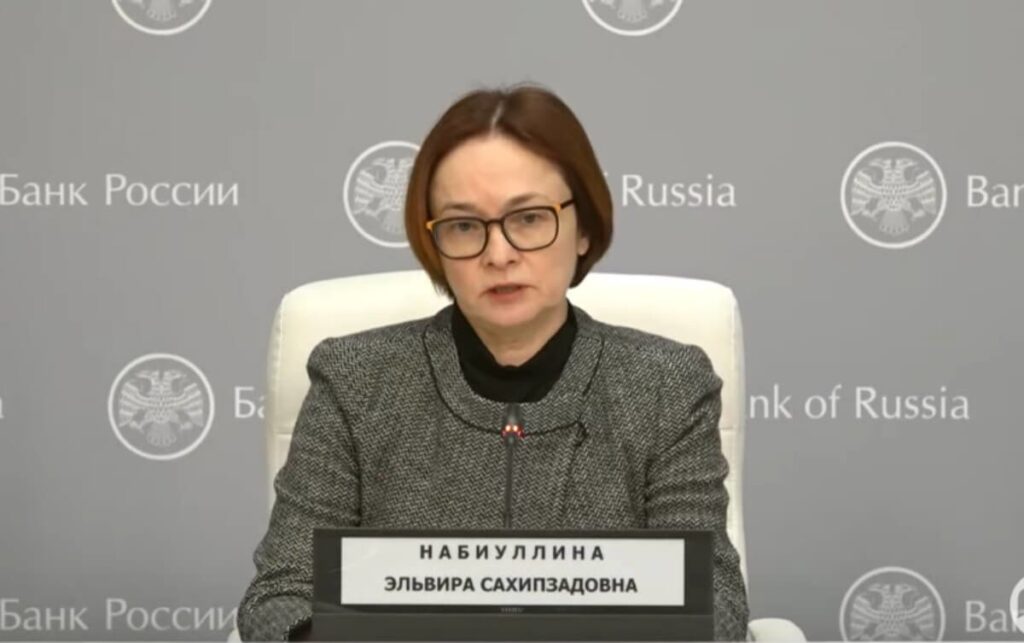Russia’s Central Bank chief Elvira Nabiullina has stated that she is prepared to allow the nation to do business in crypto – as long as it does not enter the Russian financial system and is only used in international settlements. But the country’s finance ministry, which favors legalization and regulation, is hopeful of reaching a compromise with the bank.
Nabiullina is a key ally of president Vladimir Putin and has been widely praised in Russia for her handling of the national economy in the face of international sanctions. But she is also the nation’s most prominent crypto-skeptic. She has called several times for a blanket ban on crypto and a fast-tracked digital ruble rollout.
Although the bank’s position has somewhat softened in recent weeks, with bank chiefs including Ksenia Yudaeva (the bank’s Deputy Governor) claiming that crypto could be used in the international settlements space, Nabiullina’s personal endorsement packs more of a punch.
However, she issued a familiar-sounding warning about the dangers of what she has labeled the potential “cryptoization” of the Russian economy.
Per Kommersant, Nabiullina told reporters at an economic forum held in St. Petersburg:
“Our position is that cryptocurrency should not be used as a means of payment within the country. […] As for the use [of crypto] in international settlements, if it does not enter into the Russian financial system, then it is possible.”
Speaking at the same event, Ivan Chebeskov, the financial policy department head of the Ministry of Finance, said that the ministry hoped to “reach an agreement with the Central Bank on the regulation of cryptocurrencies.”
Chebeskov also spoke of crypto mining, an industry that the government wants to regulate and tax. He called the sector a “growth engine” for “Russia’s digital economy,” and added, per FinAm:
“We believe that the industry certainly needs to be regulated. We hope that we will indeed reach an agreement on all the remaining points [where we are currently at odds with] the Central Bank. At the beginning of the year, we did not have common ground at all. Now we have found common ground: mining and settlements for overseas economic activity.”
Nabiullina has not spoken publicly about any changes to her crypto mining stance, but multiple government figures have claimed that the bank may be prepared to allow mining – provided all tokens that miners receive stay out of the Russian economy.
The ministry will doubtless have been buoyed by news that one of the world’s biggest gas companies, Gazprom, has struck a deal with the Russian Bitcoin (BTC) mining firm BitRiver.
BitRiver was hit with sanctions by the American regulatory Office for Foreign Assets Control (OFAC) back in April this year, a move the Russian firm called “unfair.”
But the new deal will provide a boost to the company. Under the terms of the agreement, Gazprom’s oil arm Gazprom Neft will provide BitRiver with electricity it creates by burning associated petroleum gas at drilling sites. This electricity will be used to power BitRiver-run mining complexes that will be built at the drilling sites.
In a press release, Igor Runets, the Founder and CEO of BitRiver, was quoted as stating:
“In the next two years, BitRiver will […] create its own data centers for energy-intensive computing with an increase in capacity up to 2GW, including using associated petroleum gas, which will […] ensure high and stable power supply.”
Associated petroleum gas is a by-product of crude oil extraction, and is often burned off (or “flared”) by drilling professionals. However, industries that can make use of this resource have previously been encouraged to set up centers near oil extractors.
As previously reported, Gazprom Neft has been running associated petroleum gas-powered crypto mining pilots at its Western Siberian drilling locations since late 2020.

Source:cryptonews.com

